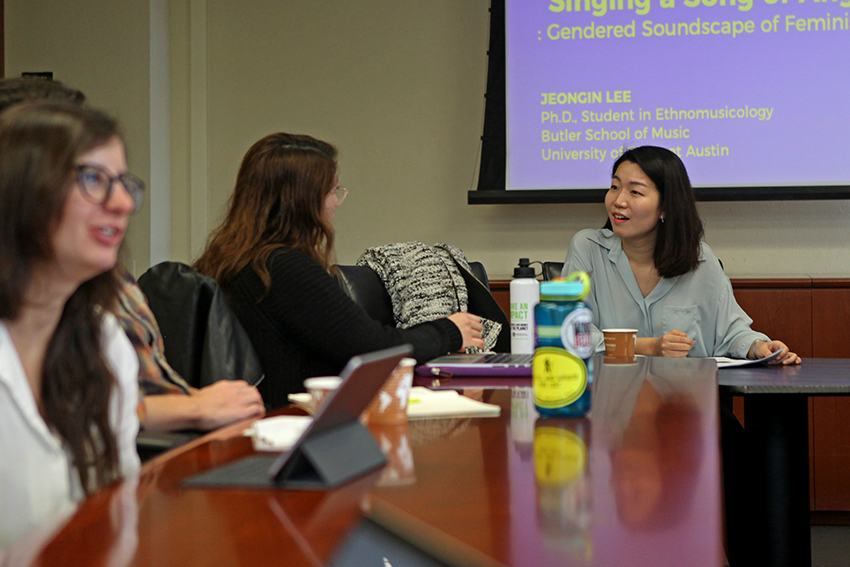
Ryan Lam
On Friday, ethnomusicology graduate student Jeongin Lee gave a presentation to a room full of her peers on the role of music in the Korean feminist movement and the evolution of the feminist soundscape in the context of protest.
The presentation was the semester’s first event of the history department’s Symposium on Gender, History and Sexuality, which gives graduate students studying those topics the opportunity to receive constructive criticism they can incorporate into their dissertations.
After writing her master’s thesis at Texas A&M University, Lee was admitted to UT’s Butler School of Music.
“I saw some professors from UT in some conferences and I really liked their work and wanted to work with them,” Lee said.
As a Korean woman, Lee said she was inspired to study the music associated with protest and the role music plays in the creation of a collective identity for protesters by the feminist movement in her home country.
#mc_embed_signup{background:#fff; clear:left; font:14px Helvetica,Arial,sans-serif; width:100%;}
/* Add your own Mailchimp form style overrides in your site stylesheet or in this style block.
We recommend moving this block and the preceding CSS link to the HEAD of your HTML file. */
“There was always something that I can relate to within the feminist movement, so I could reflect my own experience through their music and the soundscape of their protest,” Lee said. “I can also document the activities of the protesters to keep their voices alive and circulating.”
Graduate students can find a safe space to talk about their work in a more laid-back setting at the symposium, said Eddie Watson, one of the symposium’s coordinators.
“A lot of the academic conferences and talks can seem a bit formal and intimidating, so we really want a place where graduate students can get feedback on their own work in a bit more of a friendly environment while also keeping that academic rigor,” said Watson, a modern British social and cultural history graduate student.
Graduate students from any department can participate in the symposium as long as their subject area relates to gender and sexuality, which makes for an interdisciplinary space with students of diverse backgrounds and perspectives, said Paula O’Donnell, member of the symposium’s planning committee.
“It’s such a great learning experience and you get to really see how gender and sexuality can be a lens of study in different fields,” O’Donnell said.
Lee said she finds the presence of students from various fields helpful.
“I usually present my paper at the Ethnomusicology Society, so I want to try to present something and get feedback from my colleagues in other disciplines,” Lee said.
The symposium’s next presentation will be held Friday, Feb. 15.
